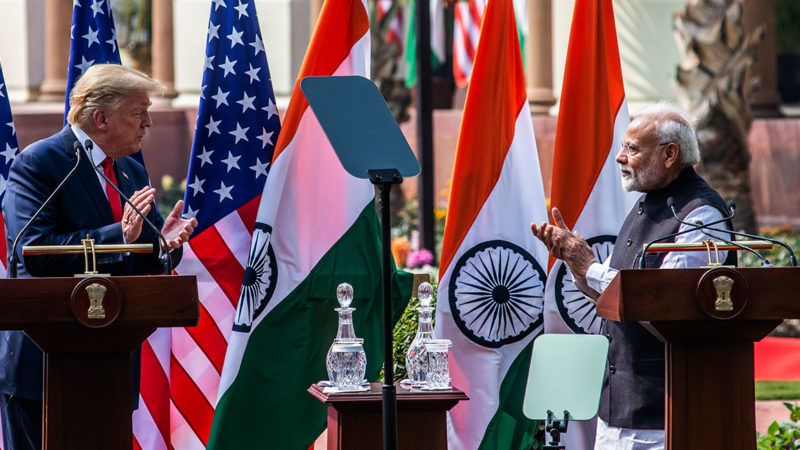India's Modi Imports American Discrimination

America's success in delivering enviable living standards while protecting human rights has made it the moral gold standard of the world, inspiring global movements for social justice, freedom, and democracy. But the flip side is that when America departs from these principles, it hands a license to other countries to do the same. India is living proof.
Even before President Donald Trump brought nativism front and center in U.S. politics, India was rummaging through American jurisprudence for intellectual ammo to justify similar policies. The world's second-most-populous country experienced a massive influx of Bangladeshi refugees in 1971 when Pakistan declared war on Bangladesh to prevent it from seceding. Pakistan's brutality triggered the single largest displacement of people in the second half of the 20th century, with 10 million Bangladeshis, predominantly Muslim, fleeing to bordering Indian states.
Although two-thirds of these refugees eventually returned home, the rest settled in places such as Assam, a lovely, bucolic state famous for its tea, nestled in the northeastern Himalayan range. This generated tensions with the local Assamese. After some grisly episodes of bloodletting, the Indian Supreme Court intervened in 2005. It scrapped an existing law that it insisted was hamstringing the government's expulsion efforts and created an expedited deportation timetable.
How did India's highest court justify all this? By quoting an entire passage from the notorious 1889 ruling Chae Chan Ping v. United States, in which the U.S. Supreme Court upheld the Chinese Exclusion Act and declared that "the highest duty of a nation" is to "give security against foreign aggression and encroachment," including from "vast hordes" of foreigners "crowding in upon us."
This is exactly how Trump characterizes Central American refugees—and how Indian Prime Minister Narendra Modi characterizes Bangladeshi Muslim immigrants. Moreover, just as Trump is expanding detention camps to house asylum-seekers who illegally cross the border, the Modi government is building a vast network of detention camps to segregate Indian Muslims who can't prove that their ancestors hailed from India.
The Modi government is also deploying well-meaning U.S. policies for immoral ends. Recently, Modi rammed through India's Parliament something called the Citizenship Amendment Act (CAA), which will hand mass amnesty to nearly every religious refugee from Pakistan, Afghanistan, and Bangladesh living illegally in India, unless the refugees are Muslim.
Such a religious test for citizenship has generated massive protests in India and condemnation abroad. But Modi's cheerleaders claim that the CAA is no different from the Lautenberg Amendment, an obscure American law that was sponsored by the eponymous Democratic senator from New Jersey and passed in 1990 to hand Soviet Jews and Christians an expedited pathway to refugee status.
The concern at that time was that the political instability generated by the fall of the USSR would make these groups—but especially Jews—even more vulnerable to persecution by fellow citizens and new regimes. (Lautenberg was subsequently expanded to include Iranian Jews, Christians, and Baha'is.) Today, Modi's supporters claim that there is no functional difference between the Lautenberg Amendment and the CAA, because both laws create special channels for some religiously persecuted minorities without eliminating existing channels for any group.
While it would certainly be better if Lautenberg had been written in a religiously neutral fashion, this comparison has holes bigger than the Khyber Pass. The most obvious one is that Lautenberg wasn't meant to cater to dominant religious prejudices, while the CAA is a blatant attempt to feed them. Moreover, Lautenberg aimed to admit more refugees into America, not to create a discriminatory standard for those inside the country. When it comes to attaining U.S. citizenship, one uniform rule applies for everyone, regardless of race, caste, creed, religion, or nationality. Most importantly, America had "normal channels" to accept refugees when Lautenberg was passed, while India does not.
Modi would have found a way to advance his Hindu nationalist agenda no matter what. But his job becomes a whole lot easier when he can enlist American laws to make his case for him.


Show Comments (77)